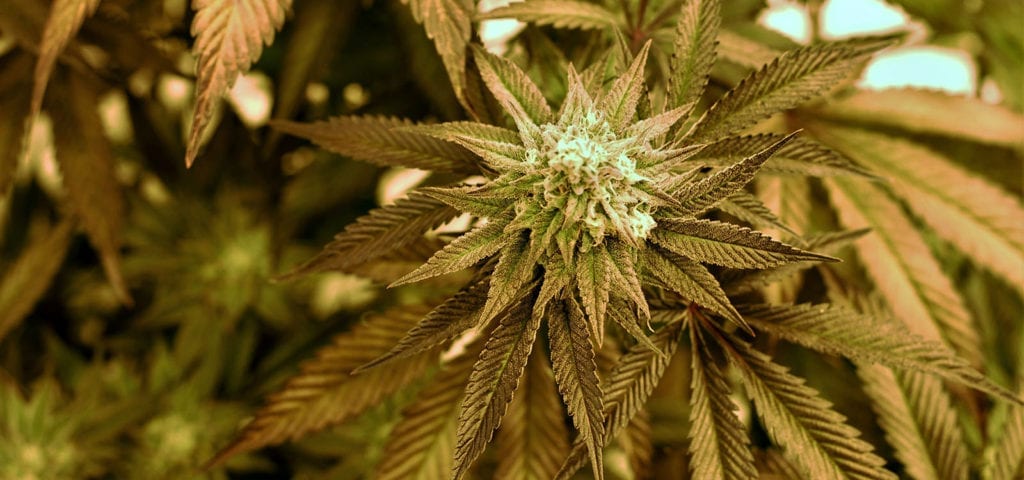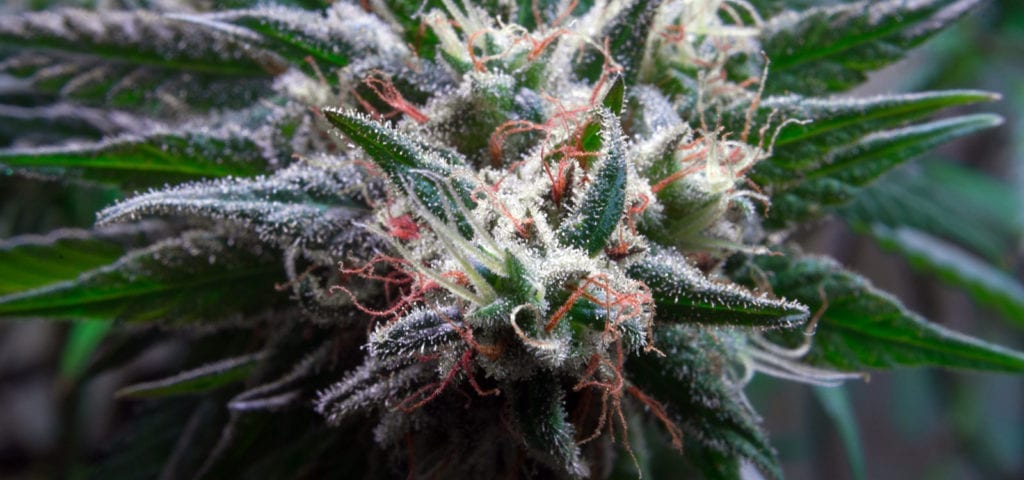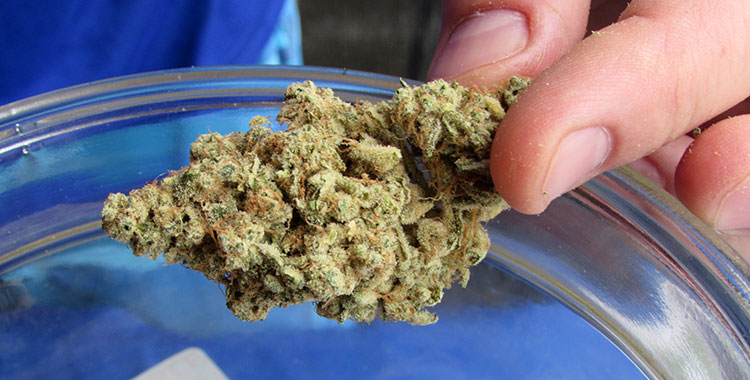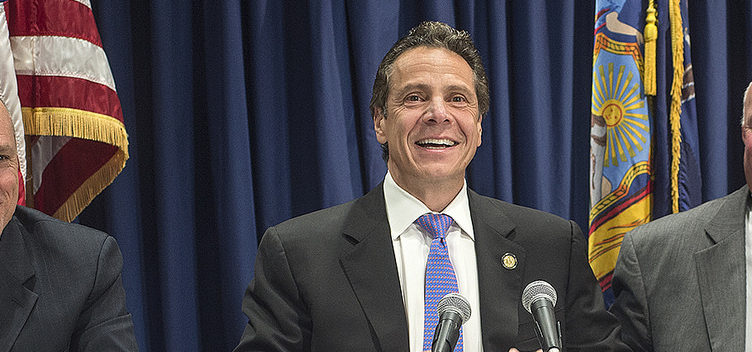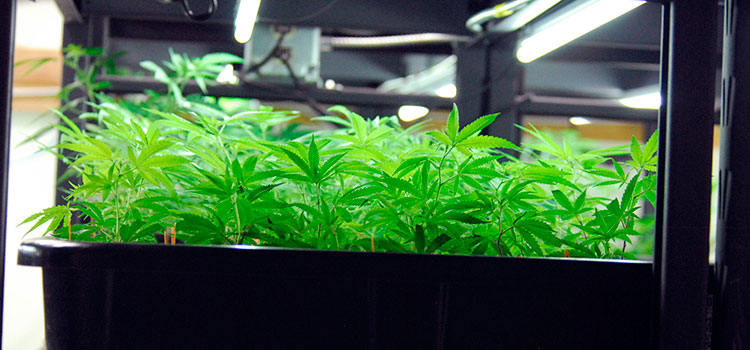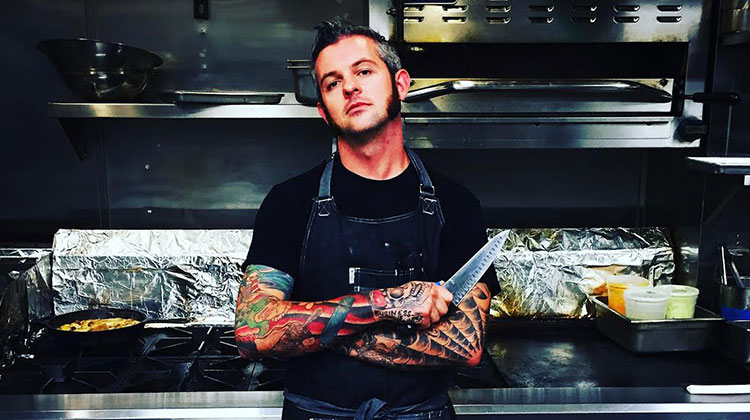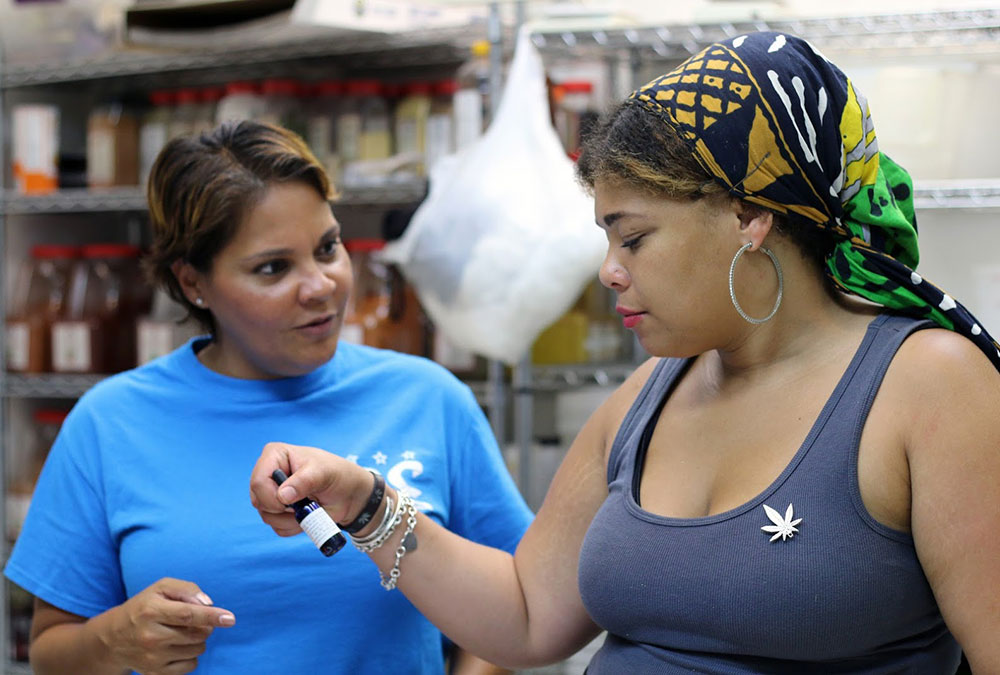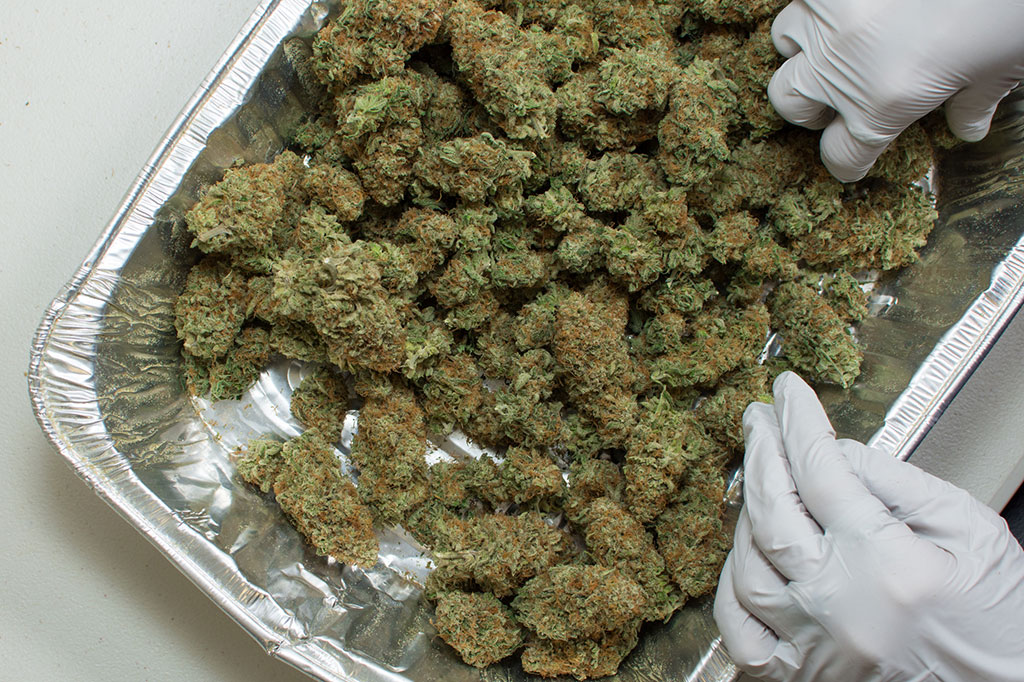Marc Shepard is an active member of NORML, MassCann, and the Patient Advocacy Alliance. He is also co-founder of the New England Cannabis Convention: an extensive and affordable cannabis industry business conference that is returning to Boston this April.
In the following interview, our podcast host TG Branfalt and Marc discuss what can be expected for Massachusetts and Maine (the first states in New England to legalize adult-use cannabis), what is likely to happen to the states’ medical markets as recreational laws come online, how lawmakers and entrepreneurs are preparing for the changes, and more!
Listen to the episode below, or keep scrolling for a full transcript of the interview.
Subscribe to the Ganjapreneur podcast on iTunes, Stitcher, SoundCloud or Google Play.
Listen to the interview:
Read the transcript:
TG Branfalt: Hey, I’m TG Branfalt. You are listening to the Ganjapreneur.com podcast, where we will bring you essential cannabis business news and insights, by speaking with stakeholders, experts, and entrepreneurs, who are focused on normalizing and demystifying the cannabis industry. Since November’s election, the General Election in particular, attention has been paid to California, after all, it is the nation’s most popular state and has led to … The industry is the first state to pass medical cannabis laws, in 1996. New England is quickly making its own mark with two states passing their own adult use measures, a couple of months ago.
Today, I’m joined by Marc Shepard, a member of NORML and MassCann and the Patient Advocacy Alliance. He’s also the co-founder of the New England Cannabis Convention. We’re going to discuss the newly legal eastern states. How are you doing today Marc?
Marc Shepard: Terrific TG, and thank you so much for having me on today.
TG Branfalt: It’s my pleasure, my man. I’d like to kick off our discussion today with Massachusetts. Massachusetts has a medical program, which was pretty new by the time that voters approved the ballot initiative, so let’s start … What’s the status of the medical market, and how might the adult use market impact the current structure?
Marc Shepard: Sure. The brief history in Mass., possession was decriminalized less than one ounce, back in 2008. The medical programs were approved in 2012. The first dispensaries, unfortunately, didn’t open until 2015. You get a taste of the Massachusetts bureaucratic process there. I’m sure that will apply to the new rec market.
The medical program has been up for four years. There’s 35 licenses approved. There are only eight or nine dispensaries active and open. We still have a long way to go just to get enough medicine out to patients. With rec passing now, obviously, the immediate impact, if you’re a patient and you’re having trouble getting to a dispensary, you can now grow up to six plants yourself, possess 10 ounces at home, two ounces in public … You can also be gifted up to an ounce from another person. The first impact of the medical program is just that, patients now who don’t have easy access to a dispensary or a caregiver, have it a little bit easier to try to get medicine now.
TG Branfalt: There’s no indication that the medical market is going to be decimated by the rec initiative?
Marc Shepard: No. I can’t see that. This isn’t a perfect analogy, but I just kind of say, you can get brandy at a liquor store but that’s not medicine. Yeah, there’s cough medicine … Brandy has alcohol in it. It’s kind of the same thing with medical mariajuana. You can go to a rec store and buy cannabis, but honestly, that’s cannabis that’s grown and developed in order to produce a good high for people, whereas medical mariajuana is going to be produced specifically to treat ailments and specific symptoms people have. So the rec market isn’t going to produce the medicine people need for their ailments.
TG Branfalt: So you said that there were 35 licenses, given in Massachusetts, but there are less that 10 dispensaries operating. Do you have any indication when the rest might come online?
Marc Shepard: It’s picking up speed. I think there were more than 90 approved applicants, and they are all going through the process. It’s an arduous, obstacle course of getting through all of the state regulations and then finding a town, and getting all that done. Everybody makes their estimates as to how soon those 35 will open. All I can say, is it’s starting to happen faster and faster. Certainly before there’s recreational stores open, I would guess the number of medical dispensaries will at least double in the next year.
TG Branfalt: Let’s talk about the recreation in Massachusetts. According to Arcview Group and New Frontier Data, they estimate that the state market could be worth one billion by 2020. Much of that figure could be driven by Boston … It’s 200 miles away from New York City. How much of that estimated one billion dollar figure, would you think would be driven by tourism?
Marc Shepard: I’ve been reading a lot about that, and a couple of people have written about how Boston is going to become the capital of cannabis by 2020, for some of the reasons you mentioned. I’m a little bit skeptical of that. I think right now, these estimates are making some assumptions. One, that things are going to progress quickly in the Mass. market, which I don’t think is going to happen, unfortunately. I think it’s going to be much slower than what people think. Also, that’s four years from now. That gives, be it Rhode Island, New York, New Jersey, Pennsylvania … That gives them four years to pass their own recreational ballot. I think those estimates, they’re based on some pretty big assumptions. I think it will be a great market. I think it’ll be a terrific tourist market. I think Cape Cod is a great tourist destination, and obviously Boston can be too. I would just say, in general, my experience with industry forecasts, they’re always wildly positive. I’m not trying to be negative. I just think that’s a little bit high.
TG Branfalt: Now you said several times that you anticipate the roll out of the recreational program being slow. Is this due to the blowback that occurred during the election? During the run up to the election by the governor and the mayor of Boston? Do you think that they’re going to try to stand in the way, or do you think that it’s just going to be a slow process?
Marc Shepard: I think it’s both. I think when you have the mayor of Boston and the governor both openly, fully opposed to this, there’s just so many ways that the sitting government can drag their feet on a process. Also, just with the law itself, it’s pretty vague, and gives states a lot of control on zoning, and on licensing, and how thing are done. So just the normal process of saying, hey, we’ve got to set up a commission. We’re going to set up a brand new control commission and give them nine months to set up rules and regulations. Even out of the gate, you’re talking about a year before a license could even be issued. It’s just going to move slow. It’s going to happen. I think it’s just going to move slower than people think. I don’t think anybody anticipated three years, from the time the medical program was approved till the first dispensaries sold marijuana. If you apply that here, you’re talking 2019 before rec would be sold, which I’m not saying will happen, but that’s what happened with medical.
TG Branfalt: Are there a lot of municipalities seeking to bar a recreational market from existing in their townships?
Marc Shepard: There’s been a decent amount of talk, so far, especially when you’re saying nobody can even apply for a year. The fact that it’s coming up, shows that people are looking at that and are concerned with it. The easiest way for towns to do it, is to set up zoning laws that sort of make it impossible. In my hometown, in North Attleboro, the zoning law for medical dispensary … You have to be separated a certain amount from schools and by churches. When you draw a map of the town, there literally isn’t any space in the town that meets the zoning qualifications. There’s lots of things that people can do to slow things down.
TG Branfalt: What’s the next step in Massachusetts? I know that we’re very early, and that no licenses, even preliminary licenses, have been issued. Where are we now in the process, and what’s next?
Marc Shepard: Sure. Right now, in this first year, there’s 75 available licenses for retail. Each license holder can apply for four different licenses … A retail shop, a product manufacturer, cultivator, and testing facility license. So you theoretically have up to 75 licenses available. In this first year, the only applicants that will be considered for those 75 licenses, will be the 90 people who successfully submitted medical marijuana applications back in 2015, and received a provisional approval. The first 75 will come out of that group. Starting in 2018, the process will be open to everybody. As those licenses are being submitted and applied for, there’s going to be a three person cannabis control commission, that’s going to be named by the state, and they’re actually going to be writing the regulations as they’re getting applications submitted and going though the process.
TG Branfalt: Have any representatives or officials or lawmaker … Have they gone to Colorado, or one of the other legal states, to get an idea of what the regulations might look like?
Marc Shepard: Yeah, there was a group of state reps, and local reps, that did go out to Colorado. They came back with a mixed bag. A lot of their quotes about what they saw, and statistical quotes that they gave to the Boston Globe and the Herald, flew in the face of statistical information from Colorado. You have people coming and saying that there was high crime and social decay, and all these problems that the state itself, in Colorado, claims that’s not true. There was some effort put into that but it seemed there were people out there just looking to sort of validate what they had heard, or what they wanted to say. It’s tough out here. There aren’t many local legislators who think it’s going to be good for them politically, to be at the forefront of this, so everybody is going to kind of … Go along for the ride, but no one is going to lead, because nobody thinks it’s politically advantageous to do so.
TG Branfalt: It’s very interesting that, in a state that has … It wasn’t an overwhelming passage of the law, but that the officials really aren’t behind this at all. It shows the will of the people kind of shining through. Applause to the activists in Massachusetts. We’re going to step away from the show real quick and take a short break. When we come back, we’re going to talk about the other state that legalized adult use cannabis in the northeast, Maine. This is Ganjapreneuer.com podcast. We’ll be right back.
Recorded Voice: Being an entrepreneur comes with a lot of stress. While you are busy developing your business, managing a team of loyal employees, and working to build a sustainable venture, the last thing you should need to worry about are your personal finances. With Latitude Financial Group, you will have the tools you need to manage your finances efficiently and easily, without all the hassle. Latitude Financial Group provides a platform that shows you everything you have, all in one place, and that stays current without time-consuming updates and synchronizations.
You’ll gain access to a free, one-hour consultation and an award winning financial software suite, that will empower you to better visualize and manage your finances. With Latitude, you can form a relationship with an unbiased, fee-based, objective, professional, personal advisor who understands your unique concerns, who listens to your needs, and who has years of experience applying financial solutions to the most complicated of financial scenarios.
Based in Denver, Colorado, the Latitude Financial Group team will work with you in ways that fit your life. Whether you prefer a face to face meeting with an advisor, at one of their 20 metro-Denver area locations, a phone call, or a Skype meeting, they can help you work to achieve your financial goals. So, if your personal or business finances are causing you stress, if you are losing sleep wondering if your financial future is secure in the career path that you’ve chosen, or if you want to work with a financial advisor who is interested in helping you become successful in your business endeavors, give Latitude Financial a call and start being proactive about your financial future today.
Don’t wait. Latitude is offering the first 10 listeners one year of free access to their award winning, software platform. Go to Rollingingrass.com. That’s rollingingrass.com to get Latitude in your financial life. Securities offered through Securities America Inc., the registered, broker, dealer member of FINRA and SIBC. Advisory services offered through Securities America Advisors Inc., an FCC registered investment advisory firm. Scott Cody, Daniel Grote representatives, Latitude Financial Group and Securities America are unaffiliated. Latitude Financial Group and the Securities America companies are unaffiliated.
TG Branfalt: Hey, welcome back to the Ganjapreneur.com podcast. I’m TG Branfalt here with Marc Shepard, member of NORML, MassCann, Patient Advocacy Alliance, and co-founder of The New England Cannabis Convention. We’re here discussing the northeastern states that recently passed adult use cannabis legislation during the general election. We talked about Massachusetts. Let’s move on to Maine. Very similar to how we approached Massachusetts, how will … What’s a brief history of Maine’s medical market, and how do you think that program will jive with the new recreational market?
Marc Shepard: It’s interesting, Maine’s question, really got into the medical program, and tried to protect it a lot more than Mass. It’s a much older program. It started in 1999, passed with a huge majority. There are eight dispensaries open in Maine, which doesn’t sound like a lot, but there’s only a million people in Maine, so it’s the equivalent to maybe six times as many dispensaries, say in Massachusetts. There’s close to 50,000 registered patients and there’s a huge caregiver network in Maine, where people, individuals, can register as caregivers and grow plants, and provide medicine for up to five patients. It’s a huge program that also is an industry. You’ve got 3,000 caregivers making a living off of this. The referendum for rec in Maine, did a lot to protect that. The growing licenses, as they come out … I think it’s 40% of them, are set aside and can only be used by what they call small grows, which wouldn’t be practical for somebody coming from out of state. The laws specifically to have a huge portion of the rec market be awarded to local growers, and more than likely it’ll come from the existing caregivers, those 3,000 caregivers.
TG Branfalt: They were the only state initiative … The city of Denver also did this … to include Cannabis clubs in the legislation. Do you think that this is a good thing? Will it help drive the program, and to what extent?
Marc Shepard: I think it’s a great thing, to be honest with you. There’s a social aspect to cannabis use, just as there’s one for alcohol. It’s sort of legalizing it but making it something that you can only do when you’re hidden in your home, that doesn’t make any sense to me. I’m very excited by that piece of it. It’ll be interesting to see how it plays out in Maine.
TG Branfalt: There’s also been political attempts to thwart the voter initiative. The opponents forced a recount, which was verified as a pass. Governor LePage, has actually said that he wants to get rid of, to quote, “the medical marijuana program.” Similarly to what was done in Washington, which is now forcing patients to pay the 37% excise tax. Who, or what agency would have to implement such changes in Maine, and are activists concerned that LePage will have his way?
Marc Shepard: On the first part, on the recount bit, it was … When you’re trying to get something passed it’s always disappointing, but I think people have to admit, it only passed by 4,000 votes. Any valid question that … is that close … I think a recount is warranted. It was dropped pretty quickly when they saw that there wasn’t enough movement to do anything. I wasn’t really that upset about that.
As far as LePage, as the governor, his lack of information and lack and total refusal to educate himself on the issue, just …. It’s really reprehensible. For anybody again, to think somehow, that recreational marijuana is the same as medical marijuana, it shows that they haven’t made the least amount of effort to look into it. That being said, the medical marijuana program was a people’s referendum. The governor can’t outlaw it. He just doesn’t have anyway to do that. Gay marriage passed in Maine. If the governor is not for that, he can’t overturn it because he doesn’t like it. I think that’s a lot of saber rattling, and that’s just him getting the word out to his constituents, that he’s against it. I don’t see how he can do anything about it.
TG Branfalt: What’s next for Maine? I haven’t really seen any numbers about the projected revenue, such as I did in Massachusetts. Do you have any insights as to what the market might bring in, in Maine?
Marc Shepard: The same survey that you had quoted earlier about Mass. puts Maine at potentially 250 million by 2020. The interesting thing is that Maine is a huge tourist market, not just for New Englanders but also for New York. I think that piece of it, and the fact that there’s the social club aspect, maybe not dollar for dollar bigger than Mass., but I do think it will become a bigger tourist destination than Massachusetts will, just because it’s a great tourist place … The southern coast of Maine.
Right now, where the law stands is the governor, I think 10 days after the recount, to sign off on this, it’s really just a ceremonial thing. It goes into effect in 10 days after the recount ended, whether he signs it or not. It might even be tomorrow that those 10 days are up, and then possession, and growing, and use become legal 30 days after that. We’re looking at, say, the end of January. It’s going to be legal to possess and grow. The commission then has nine months to finalize their regulations. In Maine, it’s actually the Department of Agriculture. They’ll have until October 30, 2017 to finalize the regulations. Then the license application process will open for 90 days for existing dispensaries and care givers. Again, October 30th or so, 2017, is when those applications will start.
TG Branfalt: The legislation is a bit more clear than Massachusetts, in terms of time frame?
Marc Shepard: Yeah, I think so. Mass. Hasn’t even named the three people who are going to make the laws yet.
TG Branfalt: So let’s talk a bit about New England as a whole. Who’s next? Neither Vermont, New Hampshire, Connecticut, nor Rhode Island have voter referendums. Vermont’s tried a couple of times to legalize adult use. It’s failed. They’ve come the closest to a legislature actually legalizing cannabis for adult use. Do you think that Massachusetts and Maine might start a domino effect in New England?
Marc Shepard: I mean, obviously if they’re successful and well run, I think it certainly puts pressure on the other states. I would think, probably, Rhode Island has the biggest stake in that. They were the first state after the Connecticut casinos opened … The indian reservations … Rhode Island was the next state, as they saw they were losing revenue, they opened the first casinos after Connecticut. They’ve got probably the best and biggest, organized, advocacy groups, led by Regulate Rhode Island … Campaigning and lobbying the legislature. I think Rhode Island might be next.
It could happen in Vermont, from what I saw, the failure in the legislative bill was really just about the fact that it was written to benefit retailers. I think that sort of, Vermont attitude, of if we’re going to make anything legal, it’s going to be for people in Vermont to grow and possess this themselves, not to make it just legal to sell. I think it was a case of poorly written legislation that led to the state house to reject it. I think Vermont could pass as soon as the right bill is written.
New Hampshire’s still in it’s baby stages of medical, so I don’t think anything will happen there. I honestly don’t know that much about Connecticut, although they have a functioning medical program, but I haven’t heard much in the way of a thrust from the people for rec. Once these … Maine and Mass. … are up and running, and people are able to either critique them or see the success, I think it does change everything.
TG Branfalt: What might your advice be to potential investors in Maine and Massachusetts?
Marc Shepard: This may run contrary to what a lot of people think, but to me, if you want to get into the business, and you’re not already in it and experienced, look at the ancillary businesses that don’t touch the plant. It’s difficult to navigate, and expensive, and risky, to get into the license lottery. You’ve got to know what you’re doing. You’ve got to be connected. You have to have a lot of cash flow, and you have to be prepared to get shut out, even if you do everything right. If you’re able to capitalize on the ancillary business, be it … There’s millions. There’s lighting, there’s growing. There’s security. There’s transportation. There’s so many ancillary business connected to this industry. I would look at my own skill set and say, what skills are applicable to those ancillary businesses. I would try to establish myself there.
TG Branfalt: We’re going to talk a bit about you bringing some of these businesses together at the New England Cannabis Convention, but first we have to take one more short break. This is the ganjapreneur.com podcast. I’m TG Branfalt.
Recorded Voice: At Ganjapreneur, we have heard from dozens of cannabis business owners, who have encountered the issue of canna-bias, which is when a mainstream business, whether a landlord, bank, or some other provider of vital business services, refuses to do business with them simply because of their association with cannabis. We have even heard stories of businesses being unable to provide health and life insurance for their employees because the insurance providers were too afraid to work with them We believe that this fear is totally unreasonable, and that cannabis business owners deserve access to the same services and resources that other businesses are afforded. They should be able to hire consultation to help them follow the letter of the law in their business endeavors, and that they should be able to provide employee benefits, without needing to compromise on the quality of coverage that they can offer.
This is why we created the Ganjapreneur.com business service directory, a resource for cannabis professionals to find and connect with service providers who are cannabis-friendly and who are actively seeking cannabis industry clients. If you are considering hiring a business consultant, lawyer, accountant, web designer, or any ancillary service for your business, go to ganjapreneur.com/businesses, to browse hundreds of agencies, firms, and organizations who support cannabis legalization and who want to help you grow your business. With so many options to choose from in each service category, you will be able to browse company profiles and do research on multiple companies in advance so you can find the provider who is the best fit for your particular need.
Our business service directory is intended to be a useful and well-maintained resource, which is why we individually vet each listing that is submitted. If you are a business service provider who wants to work with cannabis clients, you may be a good fit for our service directory. Go to ganjapreneur.com/businesses to create your profile, and start connecting with cannabis entrepreneurs today.
TG Branfalt: Hey, welcome back to the Ganjapreneur.com podcast. I’m TG Branfalt, here with Marc Shepard, co-founder of the New England Cannabis Convention. So I want to talk to you about the NECC. You guys were the first organization to hold these events in the northeast. Why don’t you tell me about it, and what’s the purpose?
Marc Shepard: We’ve actually been doing it for a little while. We came up with the idea in 2014, to sort of create a networking and resource hub for the local cannabis industry. We sort of said, look, medical is here. Rec is going to come, and sort of, our fear, myself and my co founder, Jeff Lawrence, was that with all the successful, existing business models in the other recreational states growing and competing there, when recreational use comes here, how easy is it going to be for them to take their proven models, and just plop them down in New England, and sort of take over the industry and send all the money back out west? Our idea was, how do we get all of the people who are interested in this industry, who are local, in the same room, to network and educate, and learn from each other, and build a framework for a New England-based cannabis economy?
We started with a series of small, local shows in 2015. We did shows in Providence, Rhode Island, Portland, Maine, a couple in Boston, Mass. with the idea of introducing ourselves and the idea, and then circling back to one major show. We did the first one at the Hines Convention Center in Boston this April, and brought in people from all over New England. Obviously, we welcome companies from the outside. We’re not trying to shut out other people, but we just want to give the people locally a chance to compete.
TG Branfalt: Did you have any issues with the Hines Convention Center, specifically as hosts for a cannabis con.?
Marc Shepard: I have to say, we’re very grateful to the Hines. No other convention center in Boston would even accept our show last year. They let us in. When we did sign, recreational use was illegal in Massachusetts. It’s still illegal federally. This is a state-owned facility. We had to sign an agreement saying that there’d be no actual cannabis product onsite. They asked us to sign that again, for our show next April. We signed the contract before the rec ballot passed. We’re sort of in negotiation now about what we can do, for people who have been to cannabis cups, in legal states … The vision of, a gigantic sort of farmer’s market with people sampling and partaking. That’s not going to happen anywhere in Massachusetts. We’ve got to build a model where maybe we host, sort of an event off site, and then for the convention itself, we’ll really just be doing an award show to highlight and celebrate the winners of the cup.
TG Branfalt: What was the turn out like? Was it more than you were expecting? Was it a little less?
Marc Shepard: The one in April, this year, was more. You never know when you haven’t done them. We did smaller shows in 2015 with between 55 and 70 vendors and maybe a couple thousand attendees. Then we did the show in April. We sold out the floor of the Hines. We had about 120 vendors. We had over 4,000 people come in, which certainly beat our projections of what would happen.
TG Branfalt: I was going over the website for the convention, and I saw a very interesting page about a canna-pitch slam. Do you want to elaborate as to what that is?
Marc Shepard: Sure. It’s a stolen idea, for anyone who is familiar with shark tank. It’s something that I had seen at a couple of other conventions, where you encourage young cannabis businesses, or not even born yet cannabis businesses, to submit their business proposal and their investor plan. What we’re going to do, is collect three or four veterans of the cannabis investment community to serve as judges. We’re going to take all the entries, read through them, pick our finalist, and then they’re going to do a live pitch to these people, shark tank style. It’s not going to be the same in that there’s not going to be a massive, onsite investment by these people, but it’s more just the idea of the entertainment of seeing the ideas come out, people competing, and getting hammered by questions in a very interactive type show at the convention.
TG Branfalt: How did you go about working around some of these issues with not being able to have cannabis onsite, and did this impact the expectations, I guess, of the attendees?
Marc Shepard: You certainly field plenty of questions from people asking, can I smoke inside? Can I buy cannabis inside? I understand those questions. I think it’s a little silly when people’s expectations is that they’re going to be able to smoke inside a state building. You can’t smoke a cigarette in there. How are you going to be able to smoke cannabis? Again, at the time, it was illegal.
The people who come to our show we’re really looking at two components. One, people who want to get into the business or are already in the business, and want to network … They don’t care if there’s plants in the show or not. Maybe some people want to demo a product they have and it’s easier to demo with actual cannabis. It’s not very hard to substitute a similar plant. The other half is people who are interested in the medical program, whether they want education for themselves or a loved one, or are trying to understand how to navigate the system, or get involved in that industry. Again, the absence of having an actual cannabis plant, doesn’t really impact that experience.
What we’re missing, and I’m a recreational user myself, I’d love to go to what I would call a pot festival, where there’s buying and selling and comparing. That would be great. I do understand that that’s illegal and it isn’t going to happen in Massachusetts, or anywhere in New England, for a couple of years on. I’m eagerly awaiting when we can do that, but it’s going to be awhile.
TG Branfalt: So, before we go, we’re getting short on time here, could you give me an idea of what was most exciting? What’s the most exciting kind of event or product was, at the last convention, and give our listeners an idea of how they can actually attend the next event?
Marc Shepard: Probably the most well attended and best feedback we got, was we had a programming stage of live demos. The demos went everywhere from cloning, growing, trimming, creating tinctures, making edibles … Every single aspect of home growing and using of cannabis, both for medical and recreational. I think there was a lot of great information there. People got very excited. They met instructors. They were able to get directions on what to do. We’re obviously going to greatly expand that now, for legal home growing and processing. I’m very excited to have a huge expansion of programming for that. The convention is April 22nd and 23rd, 2017. All the information for tickets are on our site, which is NECANN.com, which is N-E-C-A-N-N dot com.
We have very inexpensive tickets for people looking for medical information. They can just go in, pay a small fee to get in, and get access to all of the medical programming. Then there’s a more expensive ticket that gives you access to all of the demos, the business and career advice, and the main keynote speakers, and the full convention experience. It’s still, compared to the national shows that are charging $200, $300, $600 for admission, our ticket prices range between $20 and $70. It’s very affordable for anybody who’s looking to get into this industry.
TG Branfalt: Well Marc, I want to thank you so much for joining me today. It’s really refreshing to get … I’m from New York. I went to college in New York. I’m living in Michigan now, but to see the proliferation of the legal cannabis market, in the northeast, which I adore New England, it’s very refreshing and great that there’s somebody out there who’s already doing conventions and bringing would be cannabusiness owners together.
Marc Shepard: It’s fantastic. It’s a very exciting time in new England for this industry. Everybody I meet, it’s that enthusiasm. You get to be surrounded by smart, driven, motivated people, who are excited to be part of a brand new successful industry that will bring a great economic boom for this region. It’s fantastic to be involved in it.
TG Branfalt: All right. That was Marc Shepard, the co founder of NECANN. I’d like to thank you so much for coming on the Ganjapreneuer.com podcast, and wish you the bet of luck in April.
Marc Shepard: Thank you so much TG. It’s a real pleasure to be here, and I really appreciate the invite. Thank you so much.
TG Branfalt: Thank you, Marc. You can find more episodes of the Ganjapreneur.com podcast, in the podcast section of Ganjapreneur.com, and the Apple iTunes store. On the Ganjapreneur.com website, you’ll find the latest cannabis news and insights and cannabis jobs updated daily, along with transcripts of this podcast. You can also download the Ganjapreneur.com app in iTunes and Google Play. I’ve been your host, TG Branfalt.


